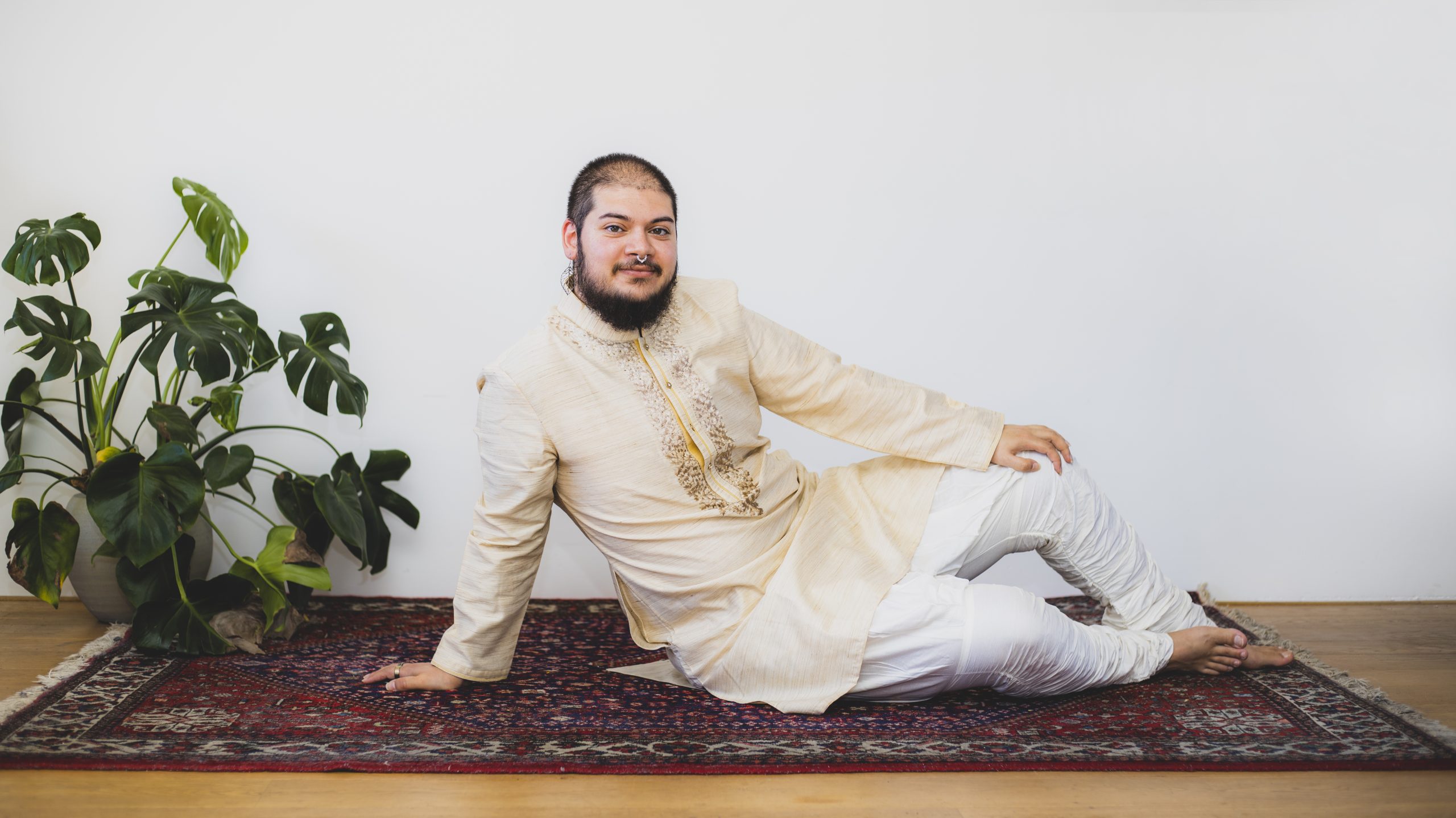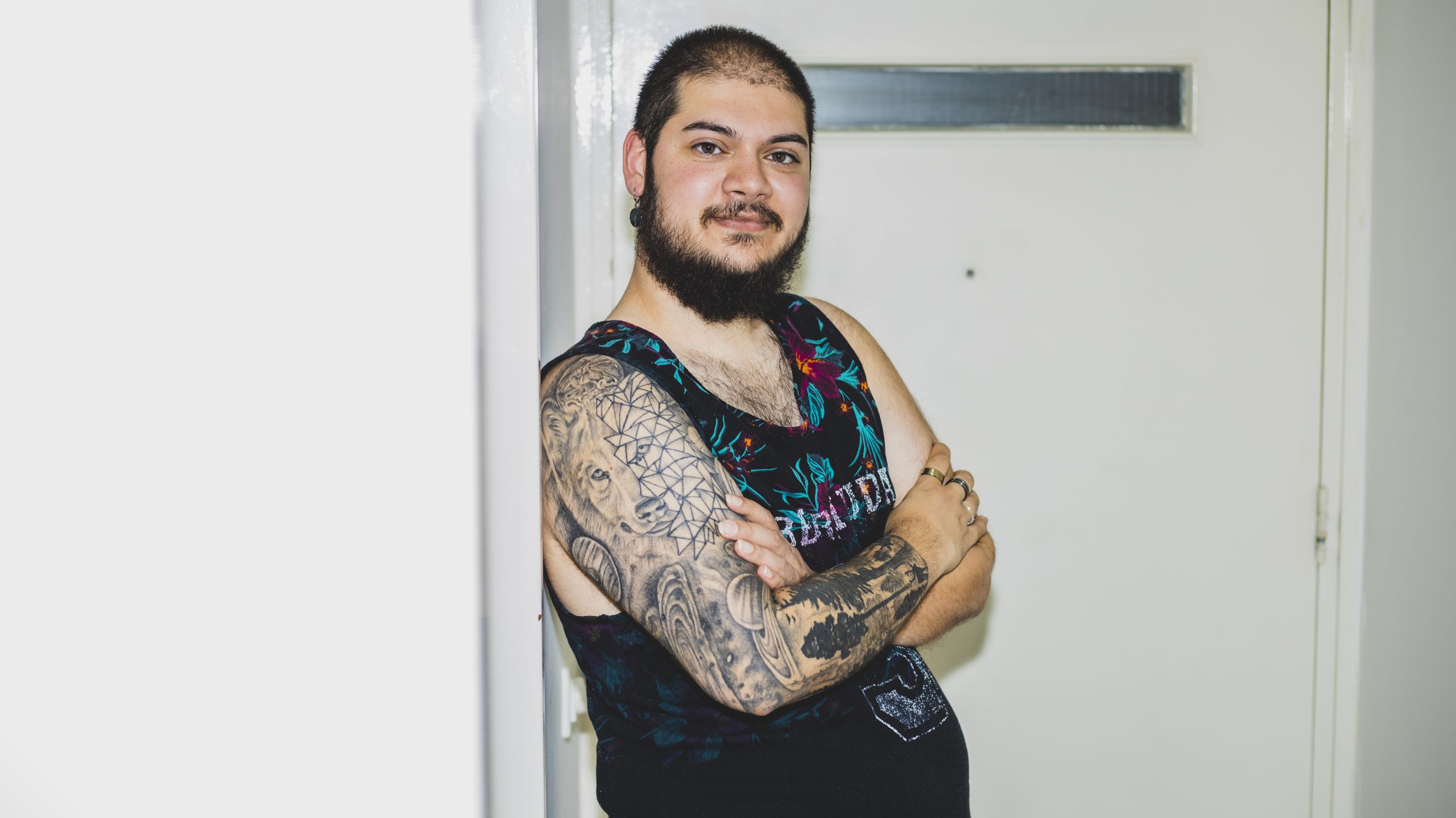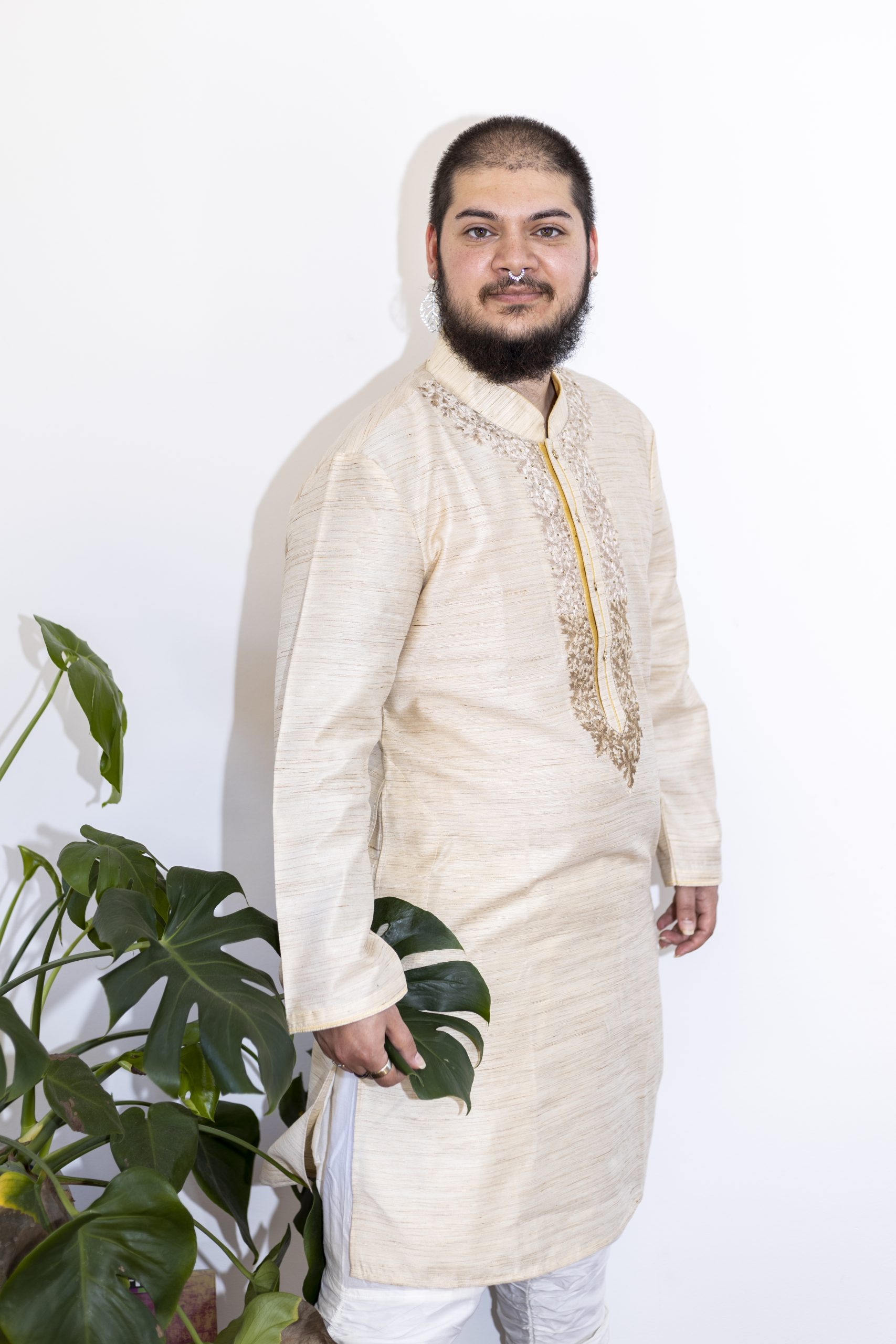‘We never talked about emotions, not at home, nor in church. It was God’s word that mattered. Feelings were supposed to be subordinate to His teachings. If they weren’t, you might be possessed by the Devil and should ask for forgiveness.
I was raised as a girl. When I was eight, I watched Disney’s Tarzan and pictured myself as an adult looking like him. Big, muscular, and strong. All my heroes were men, they were soccer players and resistance fighters from World War II. I admired their selflessness and heroism.
In church, there was a strict separation between men and women. Men occupied all the important positions, women did not. As a teenager, I grew dissatisfied with the way women and gender in the Bible were being interpreted. I tried to challenge this many times, but church leaders would lecture me and that was that.
‘ I noticed that my body wasn’t right. It was doing things I did not want it to do’
When you do not learn something exists or is possible, you don’t have words for it. No mind space. However, growing up, I noticed that my body wasn’t right. It was doing things I did not want it to do. My breasts made me very uncomfortable, they hindered me from playing soccer and from bonding with my male friends. Menstruation was less visible, so at least I could ignore that.

Image: Elvin Boer
When I was sixteen, I realised I was attracted to women. It was a big shock. The women I liked were super butch, and I guess a big part of the attraction was the fact that they had the guts to look how I, too, secretly wanted to look.
I knew that our church would not accept my feelings of body dysphoria and sexual attraction, and so they had to be eliminated. I was afraid people would discover my feelings and banish me from our community. To cure myself, I would wear dresses and pray, but whatever I did, my feelings only grew stronger. I would read the Bible, hoping to refute what I felt, but I ended up being frustrated about what was written.
Confusion and stress were building up, until I literally couldn’t eat or sleep anymore. I couldn’t stop thinking and became paranoid of everything and everyone. Eventually, I experienced a psychosis. It’s like a heart attack in your brain. I got hospitalised.
‘My beard is a symbol of the masculinity I wasn’t granted at birth. It is the thing I longed for the most’
The day after I came out as a lesbian to my caregivers at the hospital, I told them I was transgender and wanted to go in transition. I threw away my dresses, cut my hair short and took a new name. My friends from church told me they would never call me by this name and wouldn’t accept me. The visit to the clinic alone had been horrifying to them. My parents did acknowledge my feelings, but said that praying and asking forgiveness was the solution, not transitioning. But for me, there was no way back.
The first thing I did when I came out as trans was to grow my beard. For a while, I captured its growth by taking daily photos. My beard is a symbol of the masculinity I wasn’t granted at birth. It is the thing I longed for the most. Before my transition, I could never go to a barber and have my beard done. Now I can, and I love it.

Image: Elvin Boer
I am non-binary. I am neither a man nor a woman. My transition is not about becoming a man or being a man. It’s about feeling comfortable in my body, about looking in the mirror and feeling good about the person looking back at me. This is the most important thing. Also, my transition is about not being misgendered anymore. Being seen and treated as a woman was so incredibly stressful. Much more so than being called a man, because even though I am not a man, I am a masculine person and like to be one of the bro’s.
‘With my beard and buffed up body, I have the privilege of passing for a straight cis man if I need to’
One of the good things about being non-binary is that you do not feel pushed to be a certain type of man. When I had just come out as transgender, I was overperforming. I adopted a stereotypical male way of walking and I took up a lot of space in public. There’s an element of machismo and toxic masculinity to this behaviour, which had to do with an initial fear of not being taken seriously in my gender identity. It is a form of self-defence. When I noticed people acknowledged who I was, I felt more comfortable to embrace the femininity that is also a part of me.
I feel most beautiful when I mix and match masculinity with femininity. For example, I love wearing kurtas, loose, collarless shirts worn in many regions of South Asia, over harem pants. I love the combination of nail polish, eyeliner, rings, and earrings with my big butch beard.
‘The more trans and queer people are recognisable as such, the more we get violated’
I would dress like this all the time if nobody would judge me, stare at me, or get violent with me. But this is not the way the world works. When I don’t feel safe, I adapt. With my beard and buffed up body, I have the privilege of passing for a straight cis man if I need to. People will get out of my way. The irony is that being invisible also means being safe. The more trans and queer people are recognisable as such, the more we get violated. Trans women and trans feminine people are by far the biggest target of violence.
I am not a Christian anymore. My place is in the queer and trans community. My transition has changed a lot of things in my life, but my essence is the same. I still speak out against things that are not right. I am an activist in the sense that I am visible as a trans person. I do this for trans people who are still in the closet, those who are struggling and who upon seeing me might realise: wow, this is me.’

Image: Mona van den Berg/ Image on the homepage: Ton van der Weerden
